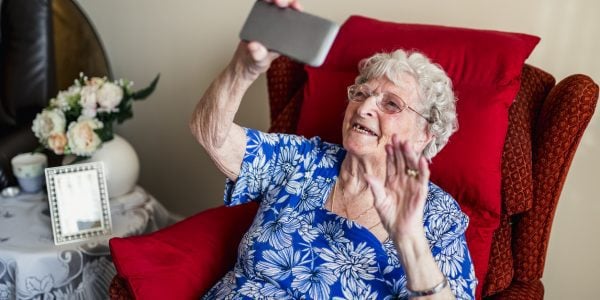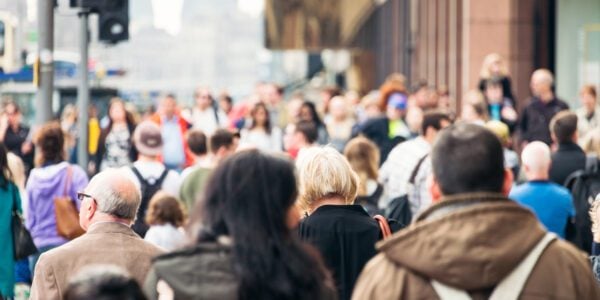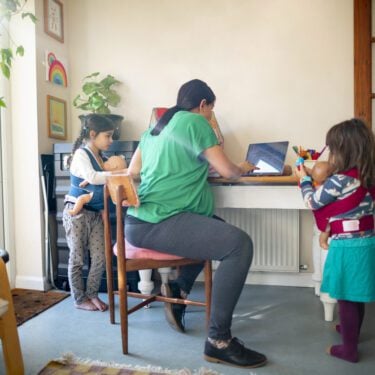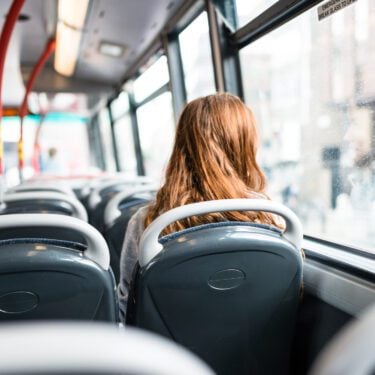
04/08/21
4 min read
Over half (51.6%) of people think UK government communication about COVID lacks honesty and credibility. This is according to a Nuffield-funded survey of 9,000 people from across the UK by researchers from Belong – the Cohesion and Integration Network and the University of Kent.
The research examined people’s thoughts on communication about COVID-19 by the UK government, by local government and by devolved governments over the last year. Local government communication was rated higher in almost all categories. The report finds that generally people view local communication as more honest, credible and empathetic than UK government communication. Respondents also perceived locally based communication to be more directly relevant to the needs of their own communities.
- 19.9% of people attributed high honesty and credibility to UK government communication, compared to 26.3% for local government communication.
- 50.2% thought that UK government communication lacked empathy and 19.9% thought the level of empathy was high.
- More people thought local government communication was higher in honesty and credibility (26.3%) and empathy (24.4%).
- 47.9% thought UK government communication did not meet their community’s needs, compared to 35.9% for local government communication.
However, 44.8% of people viewed UK government communication as highly accessible and easy to find, compared to 33.1% for local government communication. The findings did show that both UK and local government communication were perceived as fairly clear and as using understandable language.
In Scotland and Wales there was a stark difference in perception of communications from the UK government and their own devolved governments. 64% of respondents in Scotland and 62% in Wales perceived UK government communication as lacking honesty and credibility. Whereas only 22% of respondents in Scotland and 26% of respondents in Wales perceived their devolved government communication as lacking honesty and credibility.
With the lifting of most restrictions, including a relaxation of travel restrictions this week, there is a greater reliance now on ‘personal responsibility’. According to the report it is therefore vital that people can understand advice, guidance and restrictions nationally and in their local area.
The report concludes that local areas and local government are in a stronger position to influence behaviour because they are more likely to be regarded as trusted and credible. But that they need better resourcing and support to make crucial information more widely accessible and easier to find. The report recommends that both local and national government need to improve and coordinate their communication better in order to support the public to manage the virus.
The report also explored whether these perceptions differed across different regions and countries of the UK.
Regional opinion
- Respondents in Greater London, Greater Manchester, West of England and Kent had lower perceptions of UK government than local government communication (typically by a margin of about 10%, but most markedly when judging honesty and serving their community’s needs).
- Respondents in the West Midlands were less negative about UK government communication, relative to other places.
- Within all areas, the accessibility of local government communication was perceived as lower than that of UK government communication.
- A higher proportion found local government communication hard to access in Wales and in Kent (41%), and a lower proportion in Greater London (33%) than elsewhere. This suggests that the Greater London authorities were more successful in their communication than other local areas.
- People living in Kent reported both the highest inaccessibility of local communication (41%) and lowest inaccessibility of UK government communication (21%).
Respondents in Scotland and Wales were the most likely to have a negative opinion of UK government communication. Like respondents elsewhere they also held more positive opinions on local government communication. Moreover their most positive perceptions were of communication from their devolved governments.
Scotland
- 22% thought devolved government communication lacked honesty and credibility (28% for local government and 64% for UK government).
- Only 12% rated the devolved government communication as low in clarity (25% for local government and 44% for UK government).
- Only 19% thought their devolved government communication lacked empathy (36% for local government and 62% for UK government).
- 24% thought the devolved government communication did not correspond to what their community needs (33% for local government and 64% for UK government).
Wales
- 26% thought devolved government communication lacked honesty and credibility (37% for local government and 62% for UK government).
- 21% rated the devolved government communication as low in clarity (35% for local government and 49% for UK government).
- 28% thought the devolved government communication lacked empathy (39% for local government and 61% for UK government).
- 28% thought the devolved government communication did not correspond to what their community needs (36% for local government and 57% for UK government).
Overall people in Scotland and Wales expressed the largest differences in perception UK government communication compared with both local or devolved government communication. Those in Scotland and Wales were also least likely to perceive communication from their devolved governments to be inaccessible (13% and 21% respectively).
Professor Dominic Abrams, director of the Centre for the Study of Group Processes at the University of Kent, said:
“Many people have faced uncertainty about what we can and cannot do over the past year. Our evidence highlights issues around whether they think UK government communication is honest and credible, and also the difficulty in accessing more trusted information from local government. This suggests a very important gap that needs to be addressed. Our findings highlight the need for the UK government not just to provide clear factual information, but to better equip local government with up-to-date information and resources to respond to the needs and questions raised by their communities.”
Jo Broadwood, CEO of Belong – The Cohesion and Integration Network, said:
“There is good evidence to suggest that places that have already invested in social cohesion were better able to tailor their communications with local groups and communities to relay vital public health messages and mobilise community support. As infection rates are likely to surge at different times in different areas it will be vital for there to be close coordination between the UK government, the devolved administrations and local areas. Local areas will need support and resources to tailor and nuance advice and guidance in order to manage local infection rates.”
As COVID-19 restrictions continue to be relaxed, a greater reliance is being placed on personal responsibility. It is therefore important that people have credible and trustworthy sources of information and advice to draw on. This research highlights that people’s trust is lacking in communications from UK government. This finding resonates with Nuffield-funded research from Full Fact which found that the government needs to be more transparent about the data and analysis underpinning public health decisions and to act quickly to correct inaccurate statements.”Alex Beer, Welfare Programme Head at the Nuffield Foundation











































